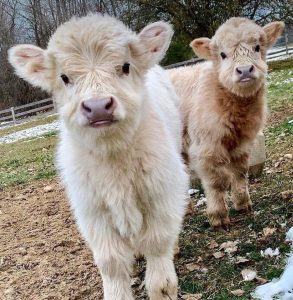Kind by Nature, Cared with Love.
A gentle space where Miniature Highland Cows are cherished, well-cared for, and celebrated every day.

The Miniature Highland Cow is a captivating and practical breed, known for its distinctive long coat, curved horns, and calm personality. Originating from the Scottish Highlands, this downsized version of the traditional Highland cow has quickly gained popularity among small-scale farmers, homesteaders, and animal lovers alike. With their gentle temperament and manageable size, these cows are ideal for families or individuals looking for a low-maintenance but meaningful addition to their land.
Gentle Companions for Farms and Families
Miniature Highland Cows aren’t just beautiful they’re also hardy, adaptable, and incredibly personable. Their thick coat protects them year-round, whether in harsh winters or warm summers, and their compact size requires less space and feed compared to standard cattle. Easy to care for and friendly by nature, they quickly become beloved members of any property. Whether you’re starting a hobby farm or simply want a unique, affectionate animal companion, these miniature cattle bring charm, character, and connection wherever they go.
Recent Posts
Miniature Highland Cow
Subscribe to get the latest Miniature Highland Cow updates and tips
Add A Title For Your Form
Briefly describe what the form is for or provide additional context if required. Use inviting language.
Miniature Highland Cow
Subscribe to get the latest Miniature Highland Cow updates and tips